The Application of Pleats in Fashion Design
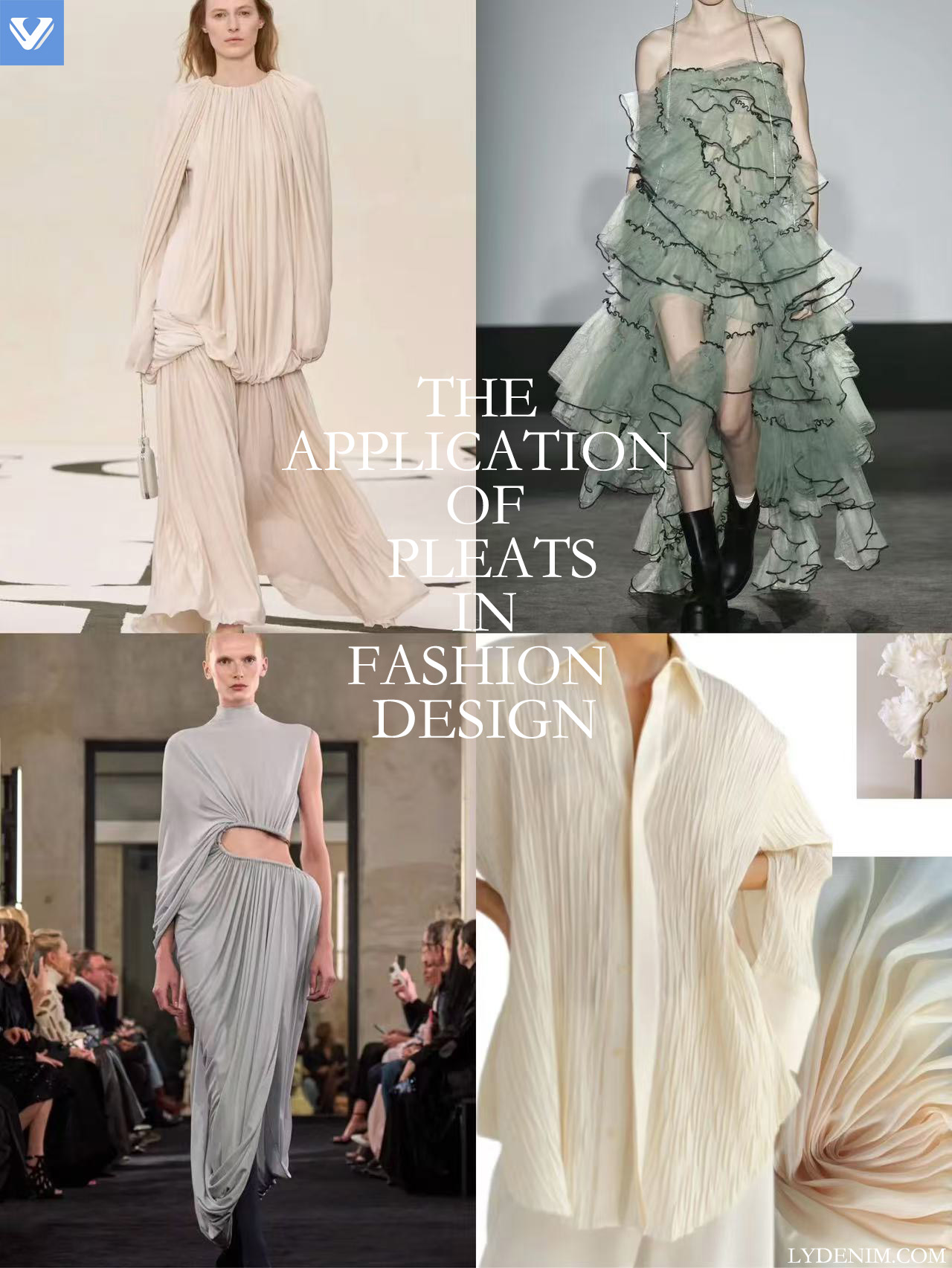
Estimated reading time: ~5 minutes
Introduction: The Art and Function of Pleats
Fashion design relies on pleats as an essential element which forms through fabric folding and stacking methods to generate layered aesthetics and emotional depth. Designers use pleats as a communication tool that surpasses technical skills to express their style and ideas. Through their ability to break flat fabric surfaces pleats establish three-dimensional light effects while creating both comfortable and practical designs. This guide examines different pleat styles together with their design elements and practical applications to help you master pleat implementation in your work.
Techniques of Pleats
Multiple pleat variations exist because each generates unique visual effects together with distinctive tactile sensations:
-
Accordion Pleats
The accordion pleat design expands in a gradual manner starting from the top before reaching the bottom like an accordion when unfolded. Light fabrics such as chiffon or silk benefit from accordion pleats because they create a lively elegant appearance while moving with grace to reveal feminine charm in skirts or dresses.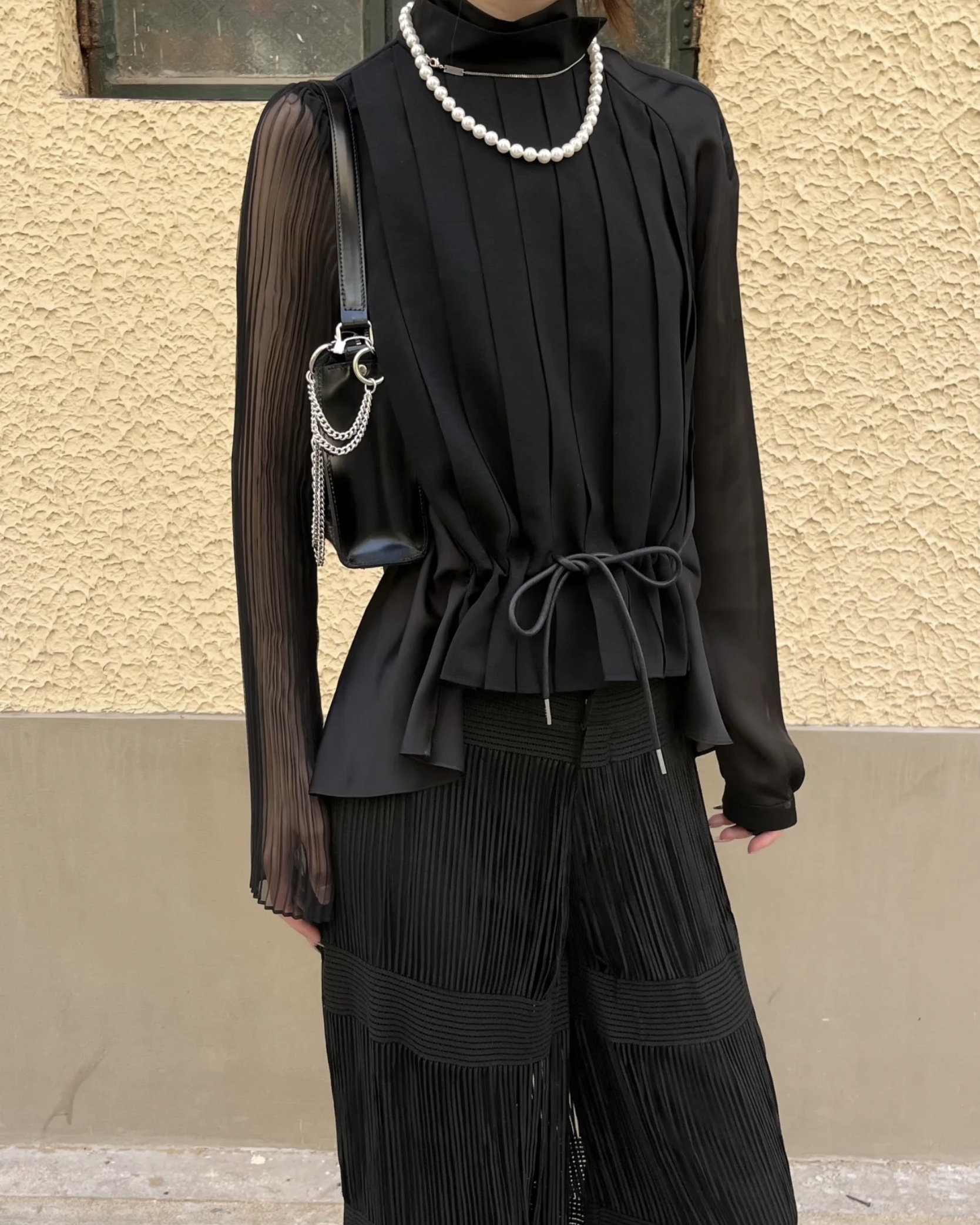
Accordion-Pleats
-
Gathers
When fabric undergoes gathering techniques at specific points or lines it naturally forms textured pleats which spread outward. This basic and versatile method is used throughout tops and skirts and cuffs to create touchable textures while adding vintage character with relaxed textured effects.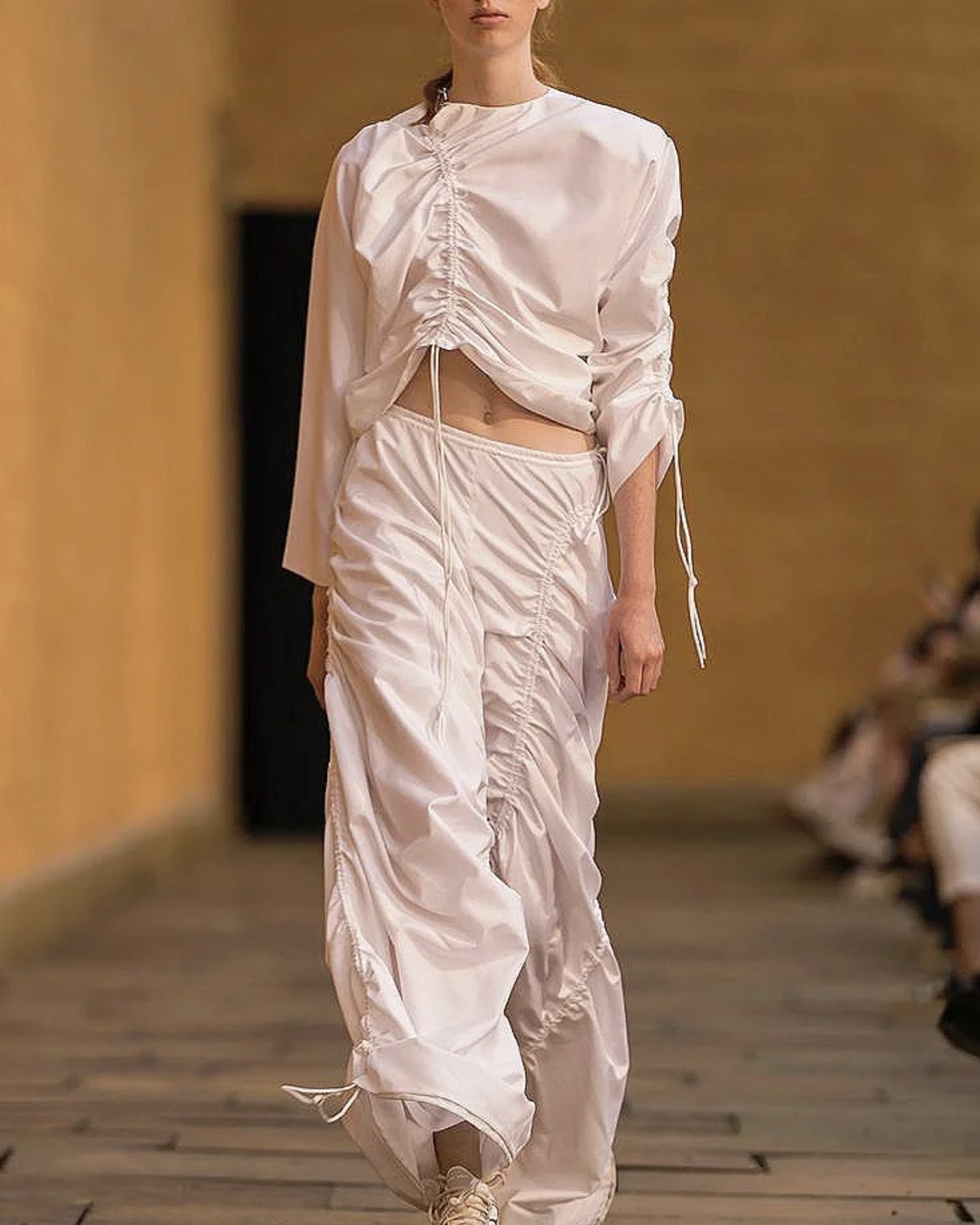
Gathers
-
Irregular Pinch Pleats
The creation of asymmetrical pleats through manual or mechanical pinching at hems and waists results in unique artistic pleats for garments. The avant-garde deconstructive approach uses irregular pinch pleats to create dramatic visual effects in experimental designs.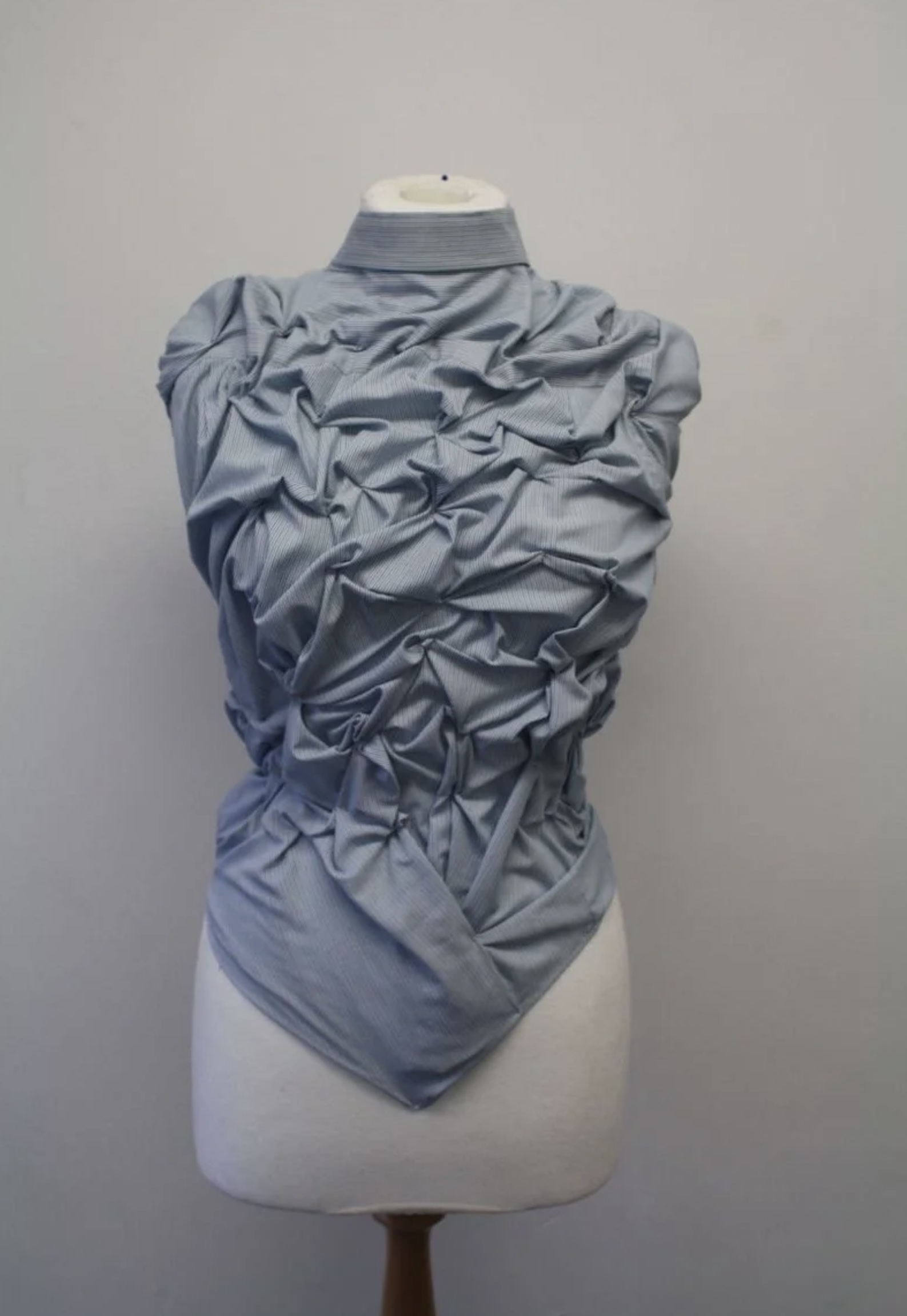
Irregular-Pinch-Pleats
Expression of Styles Through Pleats
The use of pleats extends beyond decoration because they function as a design tool which expresses themes and emotional messages and represents various style aesthetics.
-
Romanticism
Romantic designs use layered chiffon pleats to generate a light and dynamic appearance which resembles water ripples. Dior’s “New Look” collection (Dior New Look) features intricate pleats to highlight romantic feminine elements while creating an enchanting dreamlike effect that makes the wearer feel like they’re gliding through a poetic realm.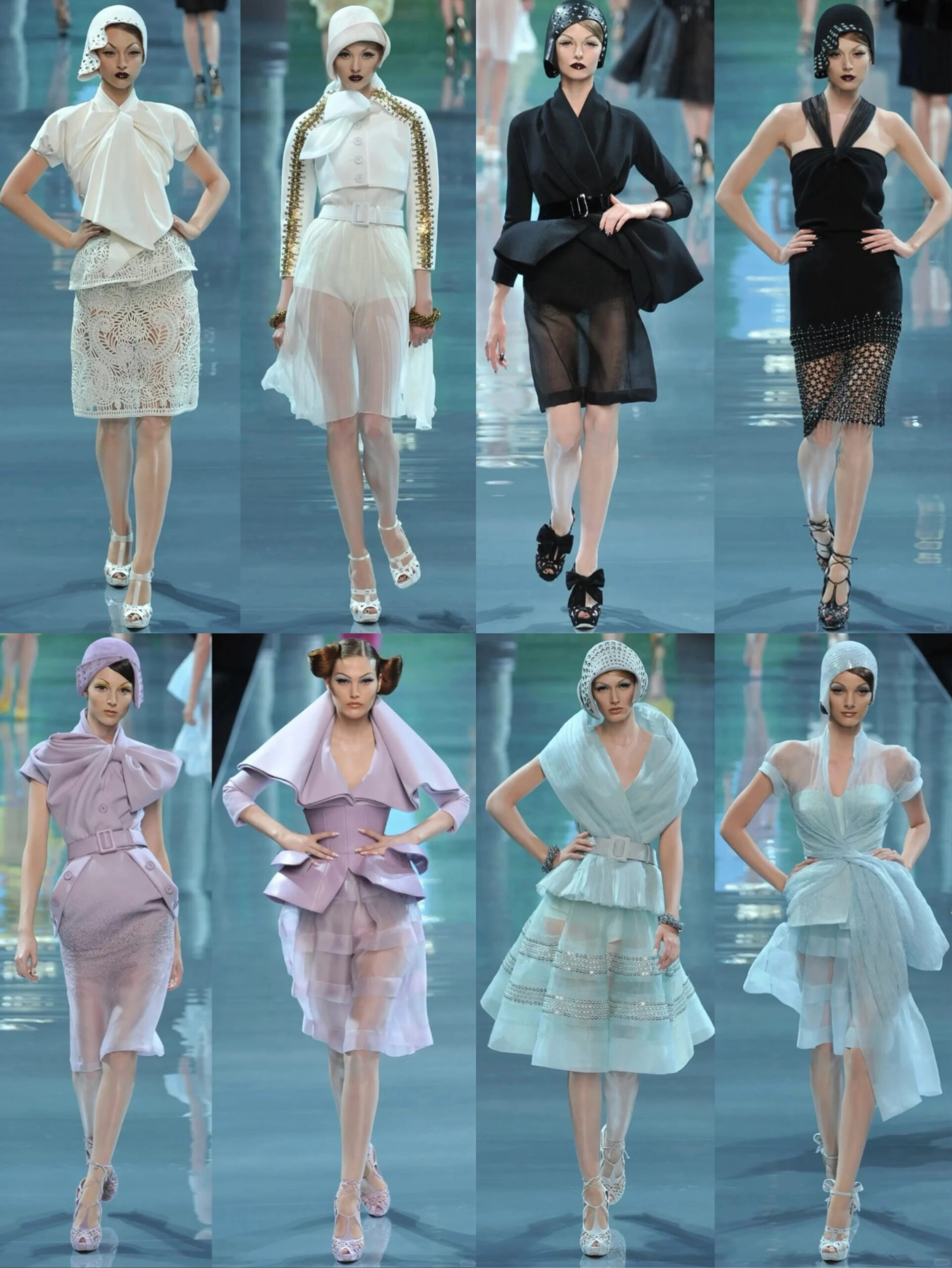
Romanticism
-
Minimalism
Minimalism promotes simplicity through sophisticated pleats which add delicate touches to cuffs and collars and hemlines. Jil Sander’s designs (Jil Sander Collections) use fine pleats to break monotony in clean lines while maintaining sleek silhouettes which embody refined restraint.
Minimalism
-
Vintage Revival
The modern interpretation of past fashion elements includes the puffed pleat crinolines from 18th-century Rococo style (Rococo Fashion) which presented luxurious complex designs. Designers of today transform these historical pleats through modern methods so people can experience luxury from different eras. The reimagined “hobble skirts” from the early 20th century use narrow pleats to create feminine silhouettes while preserving elements of nostalgia.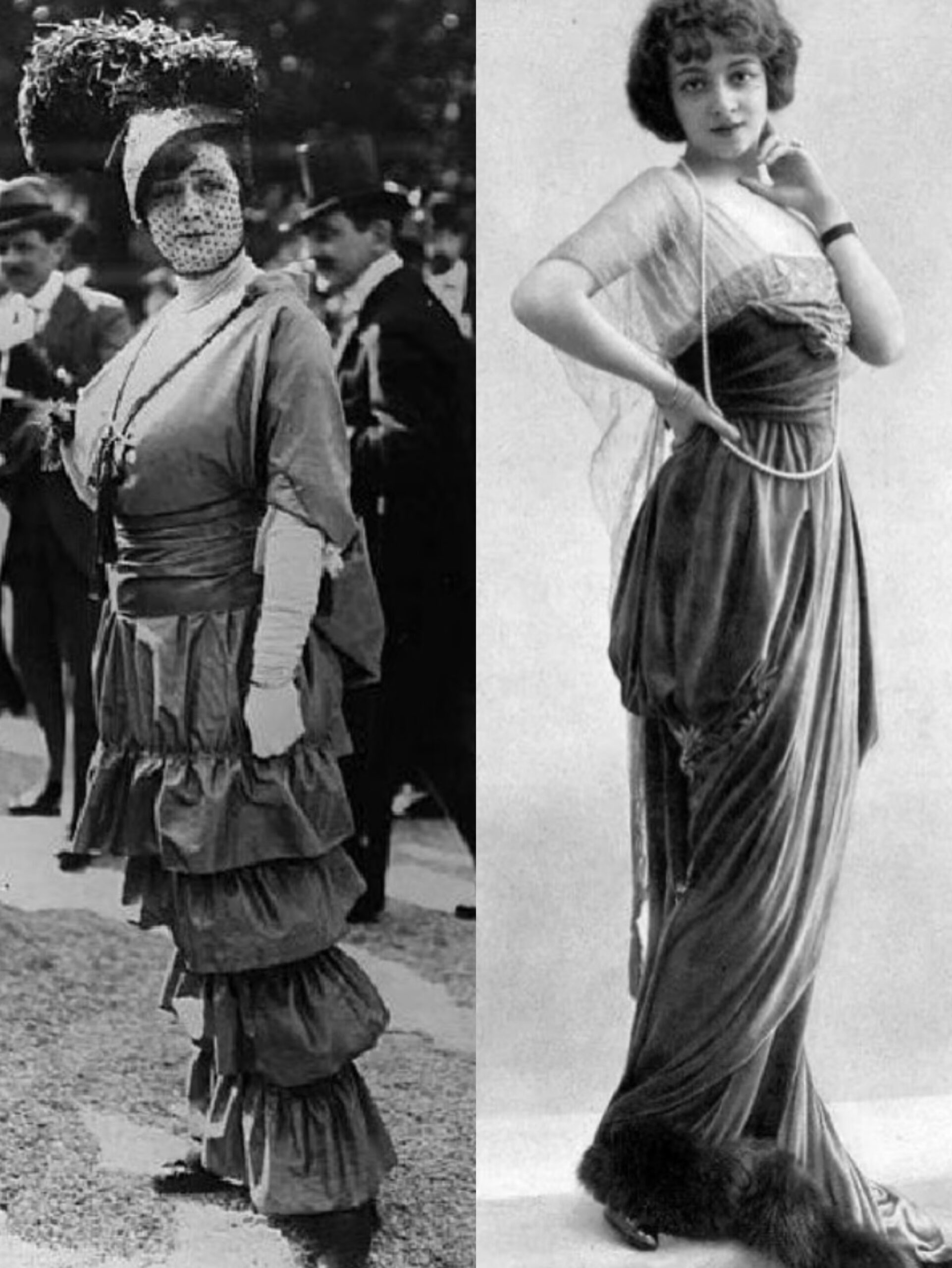
Vintage Revival
Functional Applications of Pleats
Pleats provide additional practical advantages to clothing beyond their visual appeal.
-
Three-Dimensional Pleats on Work Pants Knees
Work pants with three-dimensional pleats at their knees enable better mobility through walking and squatting and bending. The placement of strategic pleats on work pants knees provides enhanced mobility during walking and squatting and bending activities while ensuring comfort. -
Ventilated Pleats in Sportswear Armpits
The folded fabric in sportswear armpits enables joint mobility while hiding ventilation holes which results in better breathability and flexibility when engaging in physical activity. -
Multi-Layered Horsehair Pleats in Wedding Dress Hems
The combination of layered pleats with herringbone structures or crinolines produces dramatic voluminous silhouettes that are perfect for wedding gowns. -
Oversized Streetwear Jackets
Pinch pleats at the shoulders create expressive three-dimensional shoulder lines that boost oversized jacket silhouettes and follow street fashion’s expressive style principles.
Practical Applications and Customization
Pleats’ versatility suits various body types and occasions. Accordion pleats excel in elegant gowns, gathers suit casual vintage looks, and irregular pinch pleats add flair to avant-garde designs. Below are practical styling suggestions:
|
Occasion |
Pleat Type |
Recommended Pairing |
Effect |
|---|---|---|---|
|
Formal Dinner |
Accordion Pleats |
Chiffon Gown + Heels |
Elegant and dynamic, feminine |
|
Casual Outing |
Gathers |
Gathered Top + Jeans |
Vintage, relaxed, comfortable |
|
Avant-Garde Party |
Irregular Pinch Pleats |
Pinched Hem Dress + Bold Accessories |
Artistic, visually striking |
|
Workplace Commute |
Fine Pleats (Minimalist) |
Pleated Shirt + Tailored Trousers |
Sleek, professional, refined |
For personalized pleat designs, contact malone@lydenim.com or explore fabric options at www.lydenim.com. Our Alibaba’s offers additional inspiration for creative designs.
Conclusion
Fashion design depends on pleats because they unite visual appeal with operational value. Fabric transforms into a communication tool between designers and users through pleats while maintaining the natural essence of handcrafted work and limitless design opportunities. Pleats create both natural body shape enhancement in regular attire and spatial transformation in artistic clothing while maintaining their timeless “dynamic poetry” status in fashion design. Your selection between different pleat types and styles will allow you to create a distinct personalized look with confidence.
Customization Services by LYDENIM
🎨 Want custom denim fabrics or unique custom denim garment? LYDENIM specializes in tailor-made solutions to meet your design and production needs.
🛍️ Explore & Get Inspired: Browse our fabric selections and discover design ideas on LYDenim.
🌐 Elastic Clothing: Check out our offerings on MyAlibaba. 📩 Contact Us: Reach out at malone@lydenim.com.
Create your denim masterpiece with LYDENIM—your trusted partner for stretch fabric and custom denim solutions.
